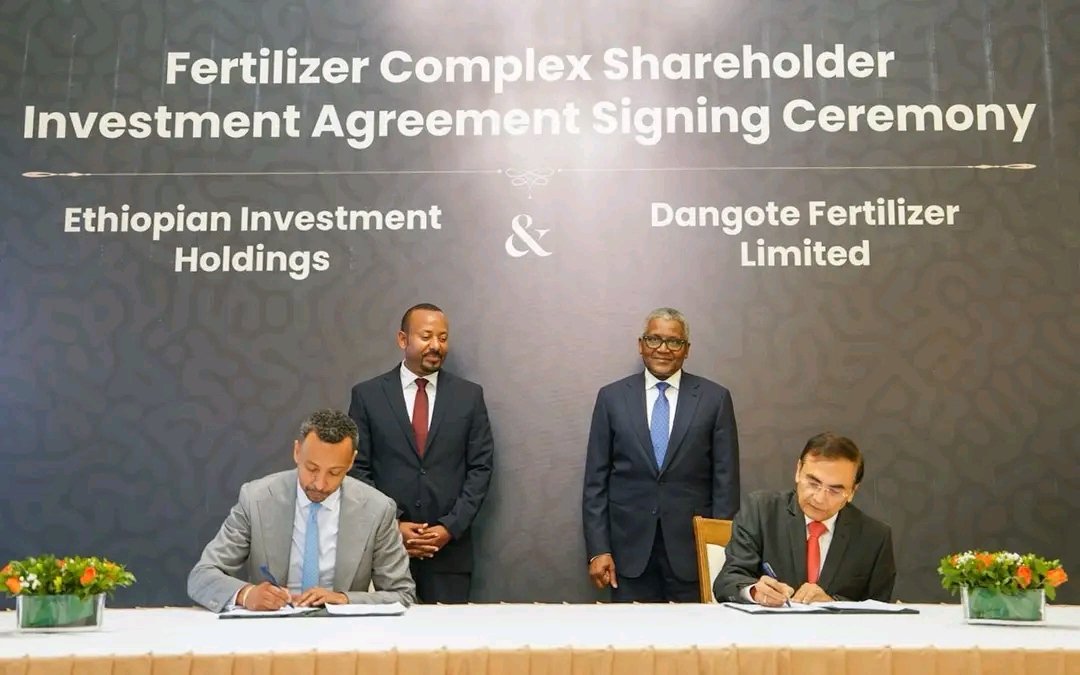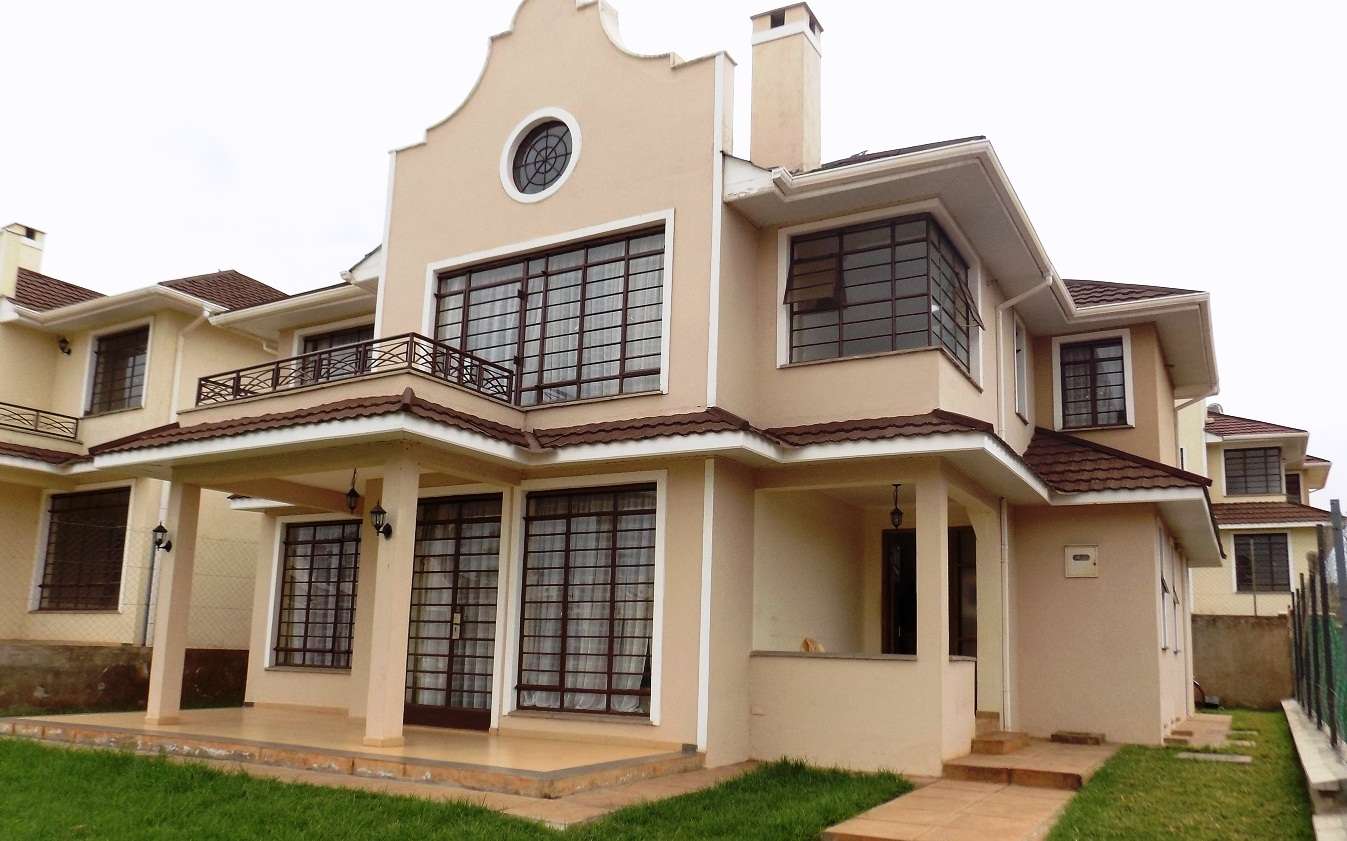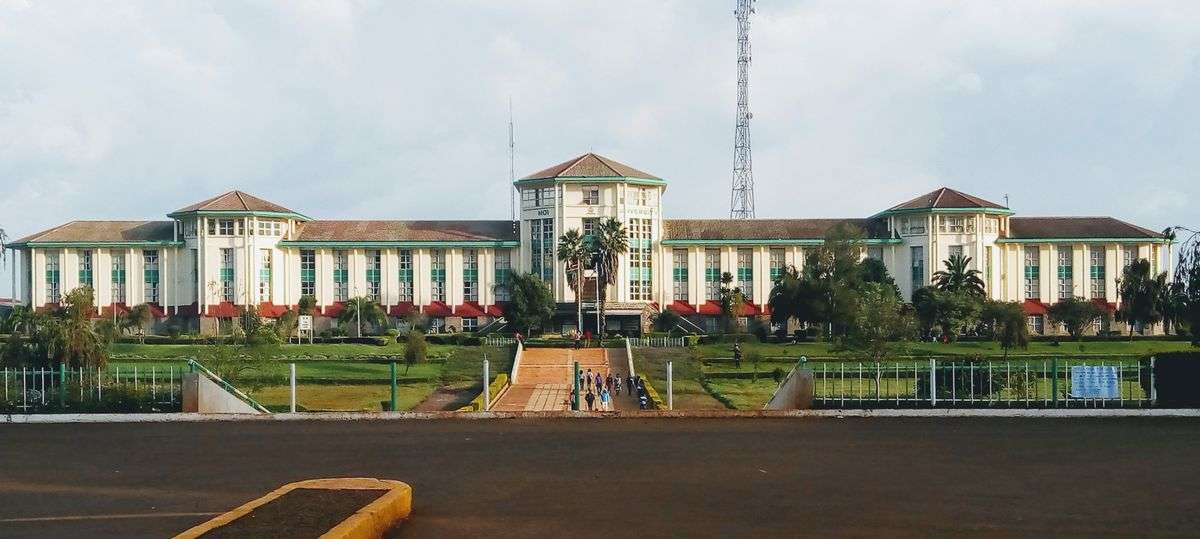By The Weekly Vision Business Desk
Ethiopia has taken a bold step towards transforming its agricultural sector and boosting food security after signing a landmark $2.5 billion agreement with Nigeria’s Dangote Group to construct one of the world’s largest urea fertiliser plants. The deal, signed in Addis Ababa last week, is expected to position Ethiopia among the global leaders in fertiliser production.
The project, to be established in Gode, Somali Region, will have a production capacity of up to three million metric tonnes per year once operational. This would make it one of the largest single-site fertiliser plants in the world, rivalling similar facilities in Asia and the Middle East.
Under the terms of the deal, Dangote Group will hold a 60 per cent stake in the venture, while Ethiopian Investment Holdings, the state’s sovereign wealth fund, will control the remaining 40 per cent. The partnership reflects Ethiopia’s commitment to harnessing international expertise and private capital to fast-track industrialisation and modernise its agricultural economy.
For Dangote, Africa’s largest industrial conglomerate, the deal marks another milestone in its continental expansion strategy. The group already operates a world-class fertiliser complex in Nigeria, which has become a key supplier across Africa and beyond.
Speaking during the signing ceremony, Aliko Dangote, Africa’s richest man and founder of the Dangote Group, described the agreement as a “defining moment” for both countries. He said the plant would not only meet Ethiopia’s domestic fertiliser demand but also open up export opportunities to neighbouring markets in East Africa and the Horn of Africa.
Ethiopia’s economy remains heavily reliant on agriculture, which employs more than 65 per cent of its population. However, farmers have long faced chronic shortages of fertiliser, forcing the government to rely on costly imports that drain foreign reserves. Officials believe the Gode plant will drastically cut Ethiopia’s fertiliser import bill, enhance productivity for millions of smallholder farmers, and create thousands of direct and indirect jobs.
“Ethiopia is determined to ensure food security for its citizens. By working with Dangote, we are not only guaranteeing fertiliser supply but also developing the value chain that will power industrialisation,” said Ethiopian Prime Minister Abiy Ahmed.
The project is also expected to have far-reaching regional implications. With a capacity of three million tonnes per year, Ethiopia could emerge as a key supplier of fertiliser to countries such as Kenya, Sudan, Somalia, South Sudan, and Uganda, reducing their dependence on imports from Asia and Europe.
Analysts note that this move could shift the balance of trade in East Africa, giving Ethiopia an edge in regional agricultural diplomacy. Moreover, the deal underscores the growing importance of South-South cooperation, with African countries pooling resources and expertise to tackle shared development challenges.
Construction of the plant is expected to begin before the end of 2025, with commissioning projected within four years. The project will require significant supporting infrastructure, including natural gas pipelines, power supply, and transport networks, which the Ethiopian government has pledged to prioritise.
As Ethiopia and Dangote embark on this mega-investment, expectations are high that the plant will not only strengthen Ethiopia’s agricultural backbone but also place the country on the map as a continental leader in fertiliser production.





